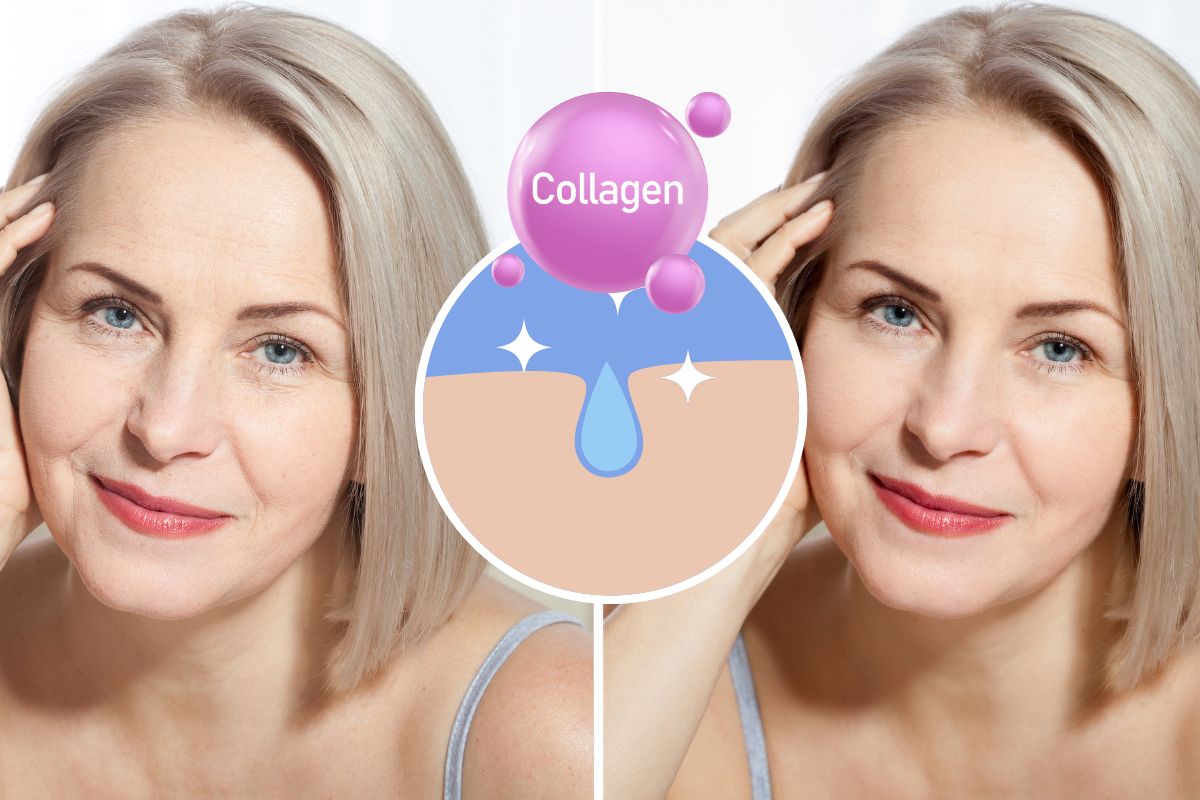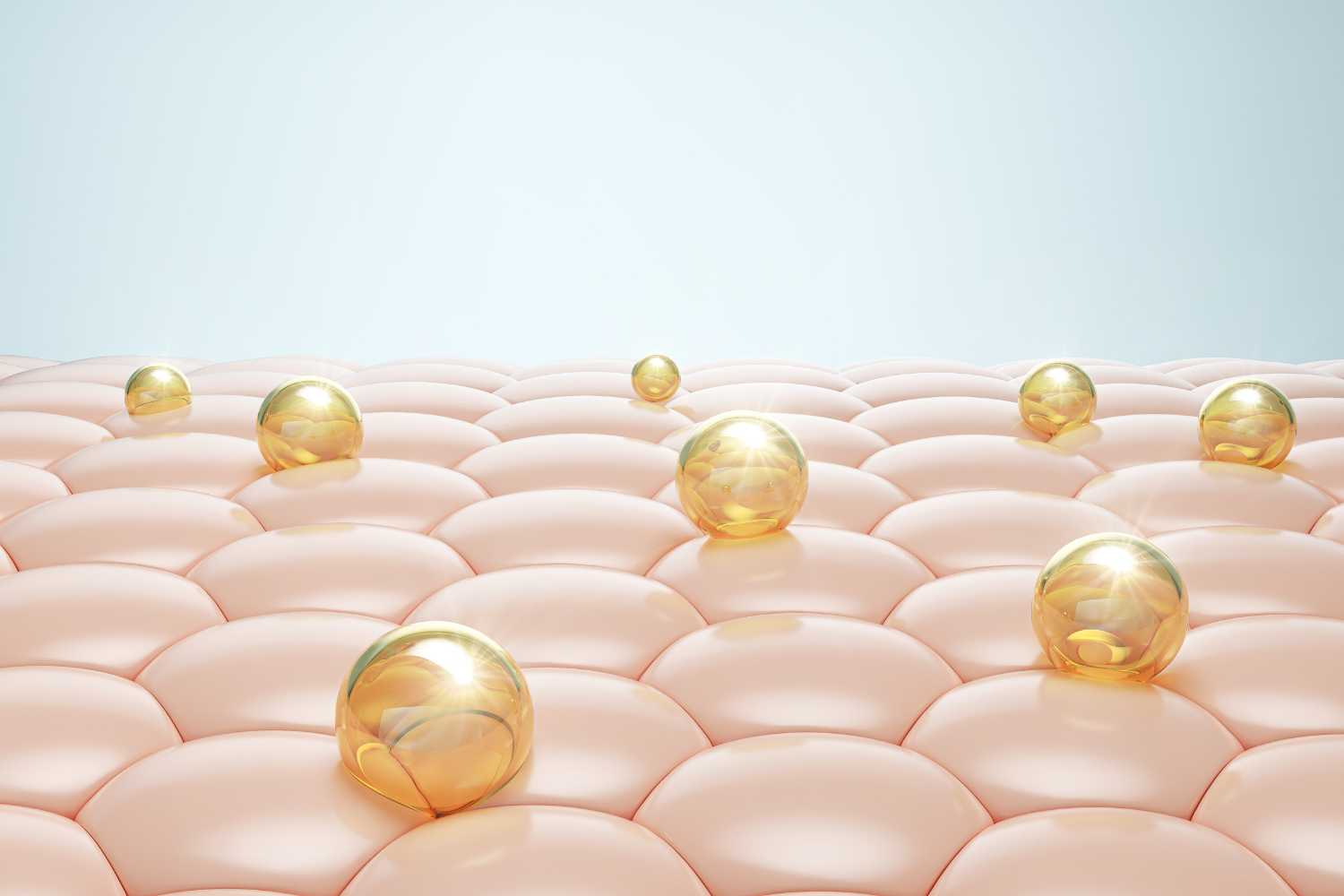Collagen is marketed as a miracle anti-aging cure, but the science tells a different story. Experts reveal what's real and what's just hype behind the collagen craze.

Walk into a pharmacy, scroll through social media, or sip a latte in a trendy Parisian café — chances are, you’ll bump into collagen. It’s everywhere. At the 48 Collagène Café in Paris, for instance, you can order a sleek little Collagène Shot Dermo Ioniq — a drink boasting 10 grams of collagen, vitamin C, blackcurrant bud extract, and resveratrol — paired with a Neptune Kiss, a chocolate-hazelnut-cashew-vanilla treat enriched with marine collagen.
In Japan and South Korea, drinking collagen has become as commonplace as grabbing a coffee. “The collagen beauty routine is the new must-do ritual!” proclaims the French brand Aroma-Zone, which proudly markets its own marine-sourced version.
But are we really drinking our way back to baby skin?
Seductive claims with little foundation
Collagen promises are as abundant as the products themselves. According to NaturAvignon’s Collagène Peau, it “reduces the appearance and volume of wrinkles thanks to a combination of hydrolyzed collagen peptides and elastin with clinically proven anti-aging effects.” Meanwhile, aRgalys’ Pré-Collagène Vegan claims to “promote skin hydration and firmness / reduce the appearance of age-related signs (wrinkles and fine lines).”
Available in capsules, powders, gummies, and sticks, collagen is marketed as the ideal way to fight skin aging, strengthen hair, and support joint function.
But how much truth is there behind these glossy claims? Does collagen actually work? Let’s dig into the science.
What collagen really is
Collagen is simply the most abundant protein in the human body. As Inserm (France’s National Institute of Health and Medical Research) explains, it’s the main component of connective tissues like skin, bones, ligaments, tendons, and cartilage.

The word comes from the Greek kolla (meaning “glue”) and gennân (“to produce”) — quite literally, “glue producer.” The body naturally synthesizes it to give tissues their structure and elasticity. “It’s a large protein, sort of like bricks in a house,” explains Professor Francis Berenbaum, Inserm researcher and head of rheumatology at Saint-Antoine Hospital in Paris. “It forms the framework onto which other components attach.”
What science really says
Collagen production declines with age, and the idea that we can simply replenish it by swallowing more is, admittedly, very appealing — and very misleading.
“It doesn’t work like that at all,” says Professor Berenbaum.
Topically, collagen works well — to hydrate the skin. “It’s an excellent moisturizer, comparable to hyaluronic acid, and frequently used in cosmetics,” says Martine Baspeyras, dermatologist and president of the French Society of Aesthetic Dermatology. But it cannot penetrate deeply.
“Using a collagen cream to stop aging makes no sense,” stresses Dr. Laurence Michel, an Inserm researcher specializing in inflammatory skin diseases and aging. “These large molecules can’t cross the epidermal barrier.”
Peptides and the false promise of absorption
Brands often highlight that their collagen is “hydrolyzed” — broken down into smaller peptides — to help it absorb better. But even then, “they cannot repair the dermal structure,” says Dr. Michel.
When it comes to oral supplements, Professor Berenbaum doesn’t mince words: “No serious study has shown that ingesting collagen leads to collagen being replenished where it’s missing.” The body breaks it down into amino acids or tiny peptides — it essentially cuts it into tiny building blocks — and then uses those where it needs them. Not necessarily for rebuilding skin collagen.
Clinical studies: hype over substance
To legitimize their claims, brands often showcase “clinical studies.” But Professor Berenbaum remains skeptical: “The few studies that exist are of poor quality. You can’t draw any real conclusions from them.”
Dr. Baspeyras offers a slightly more open view. “I eventually found some more promising studies in journals like Nutrients and the International Journal of Dermatology,” she notes. “They show that ingesting hydrolyzed collagen for 90 days may slightly reduce skin aging.”
So does she recommend it to her patients?
“I tell them there’s a huge marketing machine behind all this. Before buying supplements, try to eat well, protect yourself from the sun, and stay hydrated. Do the simple things first, instead of wasting money on products that offer little or no benefit.”
Where industrial collagen comes from
Brands love to showcase where their collagen comes from — marine, bovine, vegan… but it all boils down to the same thing. For cosmetics and pharmaceutical use, collagen is extracted from animal byproducts (like bovine or porcine skin), fish scales, or even plant-based sources.

“Whatever the source, the collagen molecule is nearly identical,” Dr. Michel points out. The molecules are then hydrolyzed into peptides, which are easier to mix into skincare, beverages, and supplements. But again, hoping these peptides will somehow regenerate your collagen is unrealistic.
Common sense is the real anti-aging secret
Here’s the bottom line: before splurging on trendy collagen shots or luxury creams, embrace the basics. Eat well, wear sunscreen, drink enough water. These simple, inexpensive habits remain the most effective ways to keep your skin healthy and vibrant. Common sense costs less — and works better — than false hope in a bottle.
